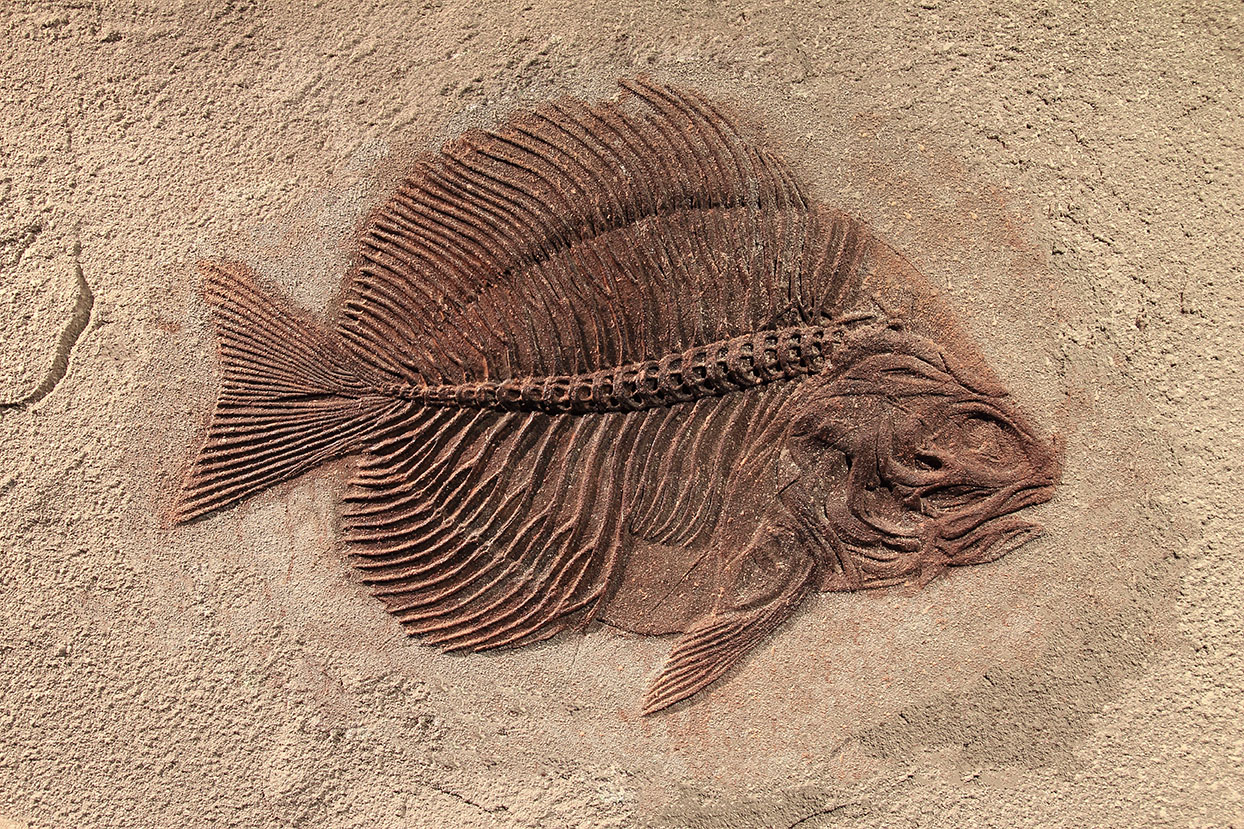
fossil
Definition
A fossil is any preserved remains, traces, or imprints of an organism that lived in the past. Fossils can be found in rocks all over the world, and they can tell us a lot about the history of life on Earth.
The formation of a fossil is a complex process that can take millions of years. First, the organism must die and be buried in sediment. Then, the sediment must be compacted and turned into rock. Over time, the remains of the organism can be replaced by minerals, or they can be preserved as a mould or cast.
There are many different types of fossils, each of which tells us something different about the organism that it represents. For example, petrified fossils are made of rock that has replaced the original organism. Mold and cast fossils are formed when the remains of an organism are buried in sediment and then dissolved away. Trace fossils are not the remains of the organism itself, but rather the marks that it left behind, such as footprints or burrows.
Fossils are an important part of palaeontology, the study of ancient life. They can tell us a lot about the evolution of organisms, the climate of the Earth in the past, and the geological history of the planet.
How can the word be used?
The museum has a large collection of fossils.

Different forms of the word
Noun: fossil, fossils.
Adjective: fossilized.
Verb: fossilize, fossilized, fossilizing.
Etymology
The word "fossil" is derived from the Latin word fossilis, which means "dug up". The Latin word fossilis is made up of the verb fossere, which means "to dig", and the suffix -alis, which indicates an adjective.
Question
What types of fossils are there?
AQA Science Exam Question and Answer
Question:
Explain the formation and significance of fossils in understanding the history of life on Earth. Describe the different types of fossils and the processes involved in fossilization. Provide real-life examples of how fossils have helped scientists reconstruct ancient environments and uncover the evolutionary history of organisms.
Answer:
Fossils are the preserved remains or traces of once-living organisms that provide invaluable insights into the history of life on Earth. Fossilization occurs through various processes like mineralization, where minerals replace the original organic material, or impression, where an imprint of the organism is left in sedimentary rock.
Fossils are significant as they allow scientists to study past life forms, their adaptations, and evolutionary changes over time. By analyzing fossils, researchers have reconstructed ancient environments, discovered extinct species, and traced the evolution of modern organisms.
Real-life examples of the significance of fossils include the discovery of dinosaur fossils, which shed light on prehistoric ecosystems and the evolution of dinosaurs. Fossilized shells found in ancient rock formations have provided evidence of past sea levels and climate changes. Overall, fossils provide a unique window into the distant past, enriching our understanding of the history of life on our planet.